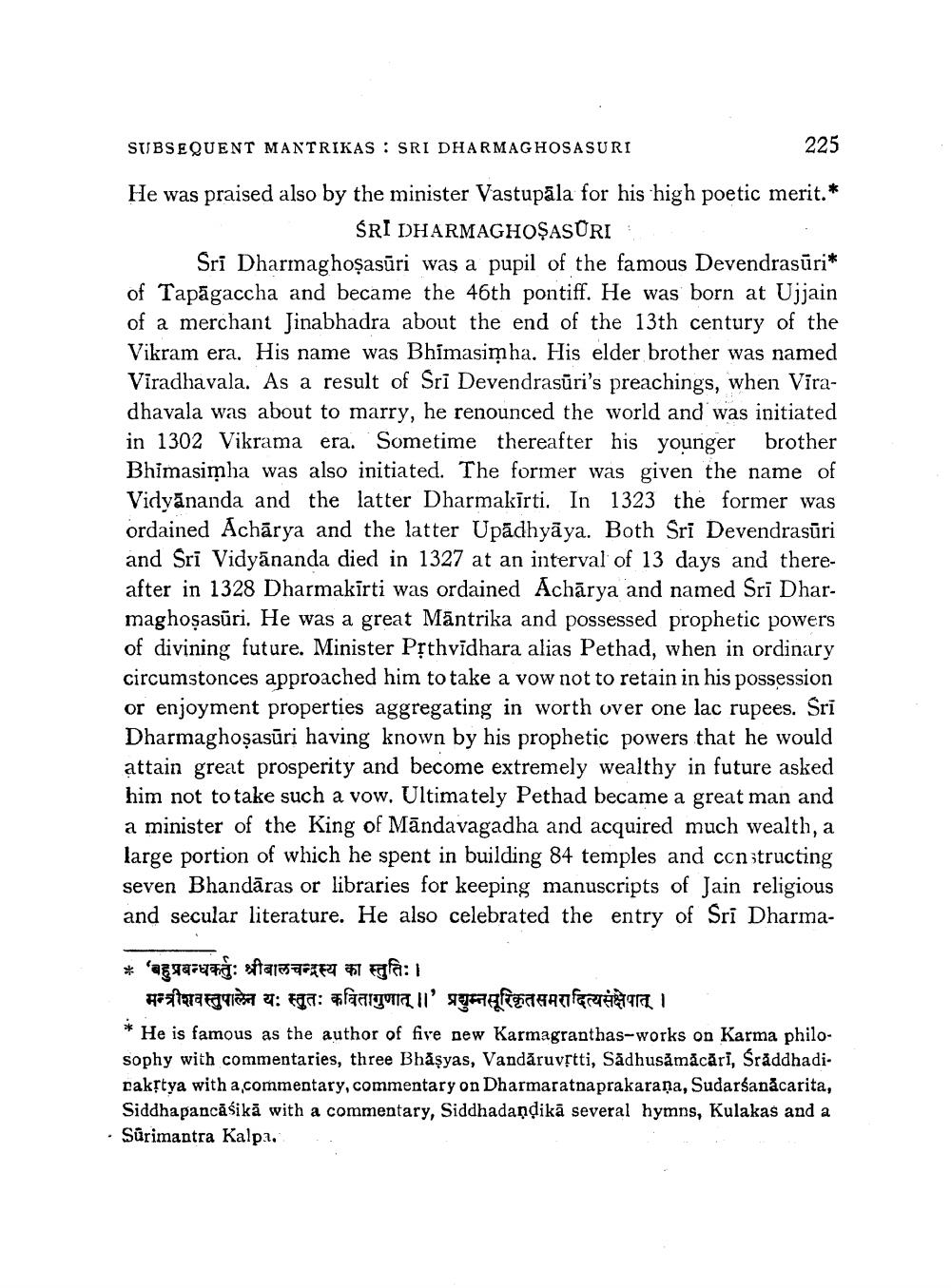________________
SUBSEQUENT MANTRIKAS: SRI DHARMAGHOSASURI
225
He was praised also by the minister Vastupāla for his high poetic merit.*
ŚRI DHARMAGHOŞASORI Sri Dharmaghoşasūri was a pupil of the famous Devendrasūri* of Tapāgaccha and became the 46th pontiff. He was born at Ujjain of a merchant Jinabhadra about the end of the 13th century of the Vikram era. His name was Bhimasimha. His elder brother was named Viradhavala. As a result of Sri Devendrasūri's preachings, when Viradhavala was about to marry, he renounced the world and was initiated in 1302 Vikrama era. Sometime thereafter his younger brother Bhimasimha was also initiated. The former was given the name of Vidyānanda and the latter Dharmakīrti. In 1323 the former was ordained Achārya and the latter Upādhyāya. Both Sri Devendrasūri and Sri Vidyānanda died in 1327 at an interval of 13 days and thereafter in 1328 Dharmakīrti was ordained Achārya and named Sri Dharmaghosasūri. He was a great Māntrika and possessed prophetic powers of divining future. Minister Pệthvidhara alias Pethad, when in ordinary circumstonces approached him to take a vow not to retain in his possession or enjoyment properties aggregating in worth over one lac rupees. Sri Dharmaghoșasūri having known by his prophetic powers that he would attain great prosperity and become extremely wealthy in future asked him not to take such a vow. Ultimately Pethad became a great man and a minister of the King of Māndavagadha and acquired much wealth, a large portion of which he spent in building 84 temples and constructing seven Bhandāras or libraries for keeping manuscripts of Jain religious and secular literature. He also celebrated the entry of Sri Dharma
* 'बहुप्रबन्धकर्तुः श्रीबालचन्द्रस्य का स्तुतिः । __ मन्त्रीशवस्तुपालेन यः स्तुतः कवितागुणात् ॥' प्रद्युम्नसूरिकृतसमरादित्यसंक्षेपात् । * He is famous as the author of five new Karmagranthas-works on Karma philosophy with commentaries, three Bhåşyas, Vandăruvrtti, Sadhusāmācārī, Sraddhadirakstya with a commentary, commentary on Dharmaratnaprakaraña, Sudarsanācarita, Siddhapancāśikā with a commentary, Siddhadandikā several hymns, Kulakas and a · Sûrimantra Kalpa.




